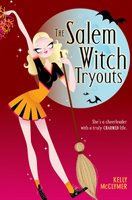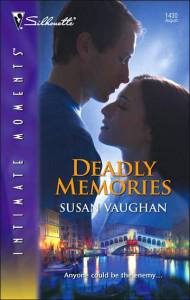My husband has been to war three times--and I experienced each departure differently. The first was the Gulf War and we were still dating. He'd had it in his mind we would marry. Having already been through one terrible marriage, there was nothing further from my mind. But when he left, he gave me a package to put under my bed and told me not to look at it. Having been a military brat and having had my father serve in Vietnam, I respected his wishes. I put it underneath my bed and didn't think about it again. Meanwhile, I kept busy. Being in the 82nd Airborne, Tom had been one of the first in the fray and near the front. While he was gone, my energy level peaked, I kept alert to all news of the war, and the letters were many although the receipt and sending were sporadic (remember this was 1990). Then, communication was difficult. He was in the desert. I never heard his voice, never was able to instant message or email. His absence hit me hard, sharpened my focus on our relationship. One lonely night, I finally realize that I loved him. He had been the best thing that came into my otherwise dark life. Then one night, about 1:30 in the morning, I got a call from a total stranger. Groggy from interrupted sleep, I answered, "Hello?" He said he was a short wave radio operator and he had a call from a guy named Tom Fuller. Would I accept? I shot straight up. "Yes, yes, yes!" Then he advised me to say "over" after I finished speaking, that the signal was from ship to shore and they needed to flip switches down the line. Then he put Tom on. I could barely understand what he said but I knew the sound of his voice. It was heaven. The amateur radioman who'd helped finally interpreted for me, said Tom wanted to know if I still wanted to do it in June. I knew what he meant. He was asking me to marry him. I yelled--"Yes, yes, yes!!!! Then the poor radioman reminded me -- I needed to say "over". "OVER!" I shouted. Then I heard Tom's laugh. It was magic and I'll never forget that moment. Then, before his return, he asked me to bring the 'package' I had so meticulously forgotten and was shocked that I hadn't looked at it. When he opened it, he got on bended knee and asked me officially to marry him. At some point in his absence, I knew there was no turning back. I said yes and to this day have never regretted it.
The next two times Tom went to war was after 9-11. His first tour was in 2002 in Afghanistan with the 19th Special Forces group. And he's there now, with the 20th Special Forces group. No, he's not in the field. I'm grateful for that, as well as the facilities that allow us to communicate more often and more easily. This takes time, but it's amazing how much you get to know each other, how refocused one gets when you only write, are away for a while from your spouse, and are reminded of why they are so wonderful to you. Having a husband like mine is like having desert everyday. Sometimes, you have it so often that sometimes you forget what a pleasure it is. Him being away, especially in a volatile situation, keeps this in the forefront of my mind.
But constantly, you are also reminded how fleeting this could be. One of the men in his unit was killed in an ambush this spring. His wife put a thank you note in the currently family newsletter for the outpouring of support everyone gave her and talked about her feelings as men in Class A's came to her door to tell her the news. She spoke of how wonderful and selfless he was, how, as the Colonel of the unit stated, he was a 'quiet professional'. How she was proud to be his wife. And of missing him. I understand. My heart and tears are with her.
Even still, there are the things to be jubiliant for. In today's paper they ran the story of an Iraqi boy brought over by one of the soldiers. The 13-year old turned over insurgent information and one of the insurgents was his father. These men were making the kids fight. He didn't want to and had the courage to come forward. I believe he saved many Americans and Iraqis with this act but it got the rest of his family killed. The sergeant had succeeded in bringing him over here for good. I see the picture of the boy in the paper. He could be my 14-year old son.
I think about these things as I write. This is an incredible world we live in. And in truth, it has never been safe. Safety is an illusion. Life, like the petals of the rose, is fleeting--yet the rose will bloom in all its glory. There's one thing I've discovered from all my experiences with being a woman who serves on the homefront--life is to be
lived, not waited for with hands folded with worries or with fear. I used to have a bookmark with this quote. The paper finally wore out but my memory of it has not--"Ships in the harbor are safe, but that is not what ships were made for." They say courage is not the absence of fear, but the ability to do what is needed despite it.
I know it's hard to wait. Being patient is not a typical American virtue. And I know each situation with a family member deployed is different. But I can share what I've learned.
1. Be brave. Take charge. Be afraid, have concern for your loved one--but don't let it stop you from living. They are there doing their job. They wouldn't want you to stop living while they serve. They don't want you dying because they might. They love you. No matter the politics, they do this so you can
live in a country they love.
2. Don't let others fears be yours. Nothing used to irk me more than when someone well-meaning would come up to me and say--"Oh, I'm so sorry he's gone," acting like he would die. I would tell them, my husband isn't there to die. He's there to do a job.
Your job is to make sure we put the right people in office ensure his talents are used the way they should be. Of course, I would smile when I said this.
3. Get busy. Let your frenetic energy flow. Don't sit idly looking at the news. One, it's depressing. Two, you aren't doing yourself, your family or your spouse any good. Instead, do something productive. Channel your worry and energy into something that will give you a return in good feelings. Do some volunteer work, join the church choir, do some project on your house, be out and about--engage in life.
4. Communicate with your spouse as often as you can. They don't have to be all sexy letters, although I know the guys appreciate it greatly. And be honest -- if things are wrong at the house, tell them. When things are right, tell them that as well. Write even when you aren't getting something back for whatever reason.
You will feel better about it. And that's what matters now. All things are in your hands. You can do this.
5. Empower yourself. You
CAN do this. There's this saying that's supposed to be a joke -- when the guys leave, they press a button and everything goes wrong. When they come back, they press it again and things are restored. Personally, I've not found it funny but it certainly is profound. I hate to think of the things that have gone wrong this year, including the death of my mother which he couldn't come home for. However, when these things happen, refer to #4. You don't have to be graphic, but tell him how you feel. And you don't have to be mean. Yes, he has things going on, you may want to hold back some things, but he needs to know where you are at and he needs to tell you where he's at.
6. War changes people. Expect this. Plan for it. Use your support groups as much as you need but don't let it be intrusive when you need some space to yourself. The military now has Family Readiness Groups (FRG's) which have some fabulous information. Remember, you will have changed too. Which is why communication is so important. Still, when he comes back it will be like having sex with a stranger. Make it exciting.
7. Worry is part of the package. Bonding with others in your situation can help make it bearable. But at some point you realize you have to put it in God's hands -- no matter what can happen. Yes, the worst may occur. He may not come home. Men in Class A's may come to your door. Or he may come home damaged. Trust in yourself, in a greater being, that you will be empowered to deal with all of this. There are no guarantees in life. Make
your life count. You're spouse certainly will be.
8. Finally, be proud. Of yourself and of your soldier. You are making sacrifices no others are. You are to be commended for your part.
One last note, I've come to realize that even though you may be your spouse's best friend, the guys at least, will not be willing to speak about their war experiences. At first, this hurt me, but then I realized my husband was only trying to protect me. Your spouse may never tell you everything. Don't take it personally. It's just part of the male genetic makeup. However, it could affect their behavior, and if this is the case, seek help.
That's it for now. Thanks for listening. And for those serving on the homefront, my prayers are with you.
~ Lise Fuller
-- "On Danger's Edge", Cerridwen Press, 12/05 -- 4 1/2 stars from Romantic Times
-- "Cutting Loose", Cerridwen Press, 2/06
 No, that is not a photo of me. And this week, instead of being at RWA, I'm doing race-related research for my upcoming book, Hart's Victory.
No, that is not a photo of me. And this week, instead of being at RWA, I'm doing race-related research for my upcoming book, Hart's Victory.



